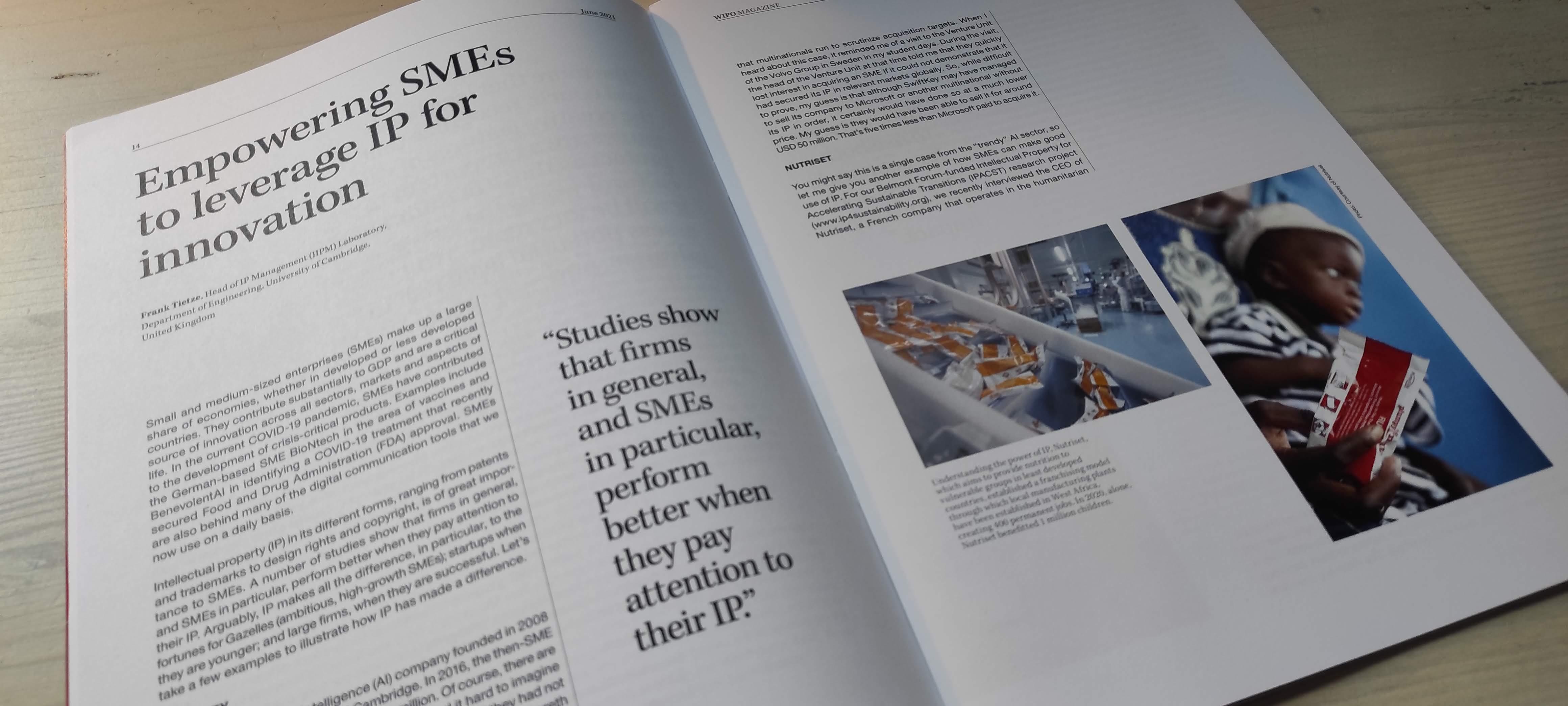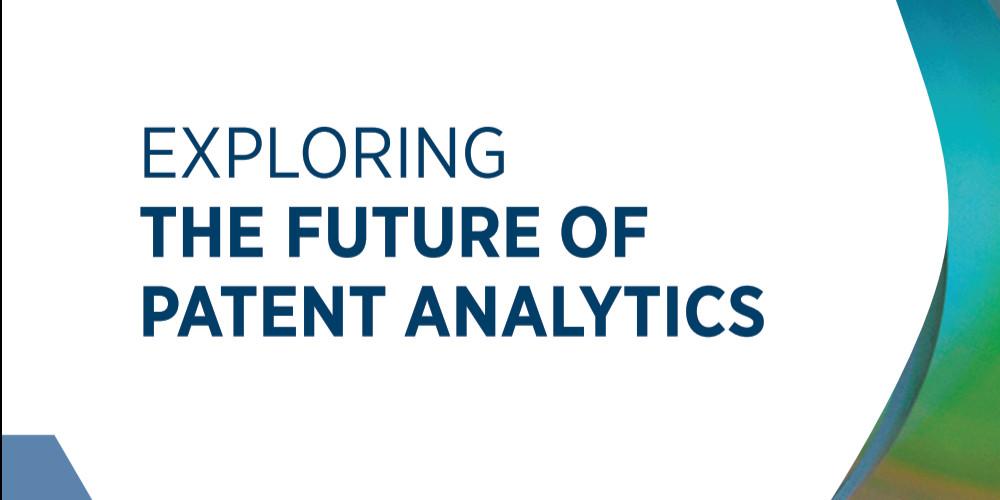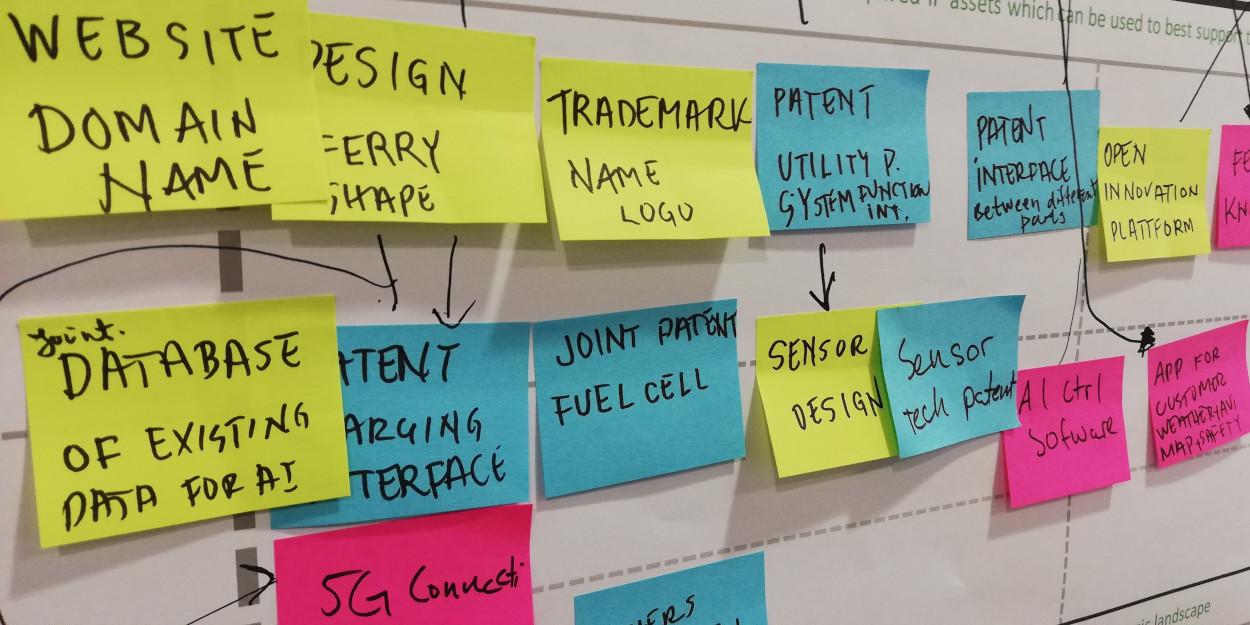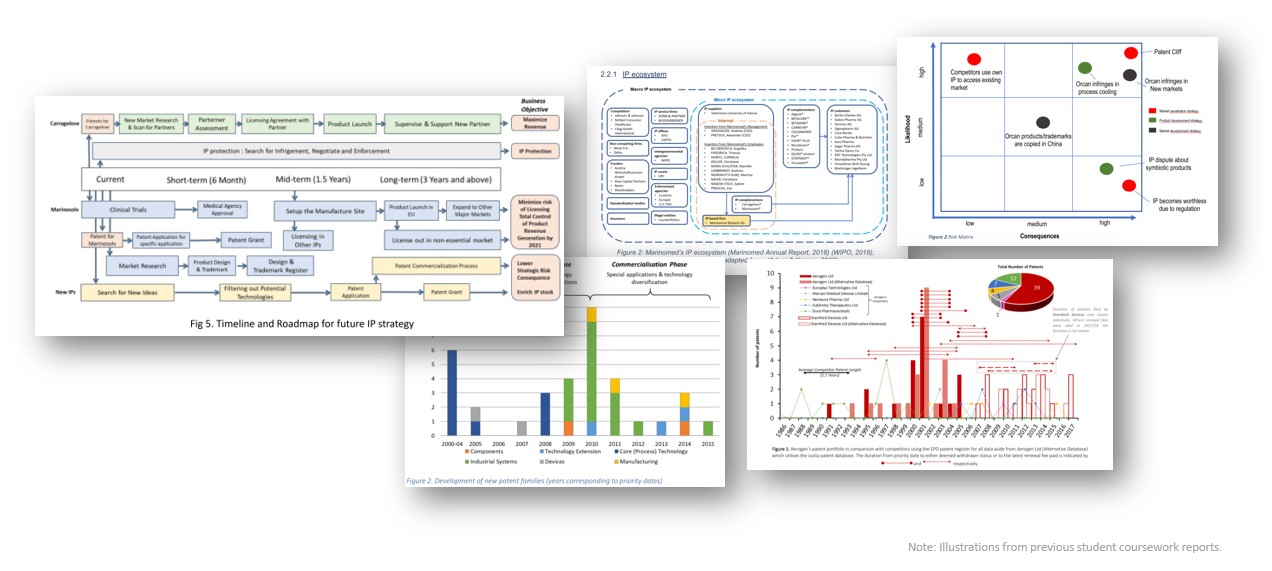Welcome to the Innovation and Intellectual Property (IIPM) Laboratory led by Prof. Frank Tietze. We are a group of academics, students and practitioners with a deep interest in the role of intellectual property (IP) in innovation processes and systems. We are part of the University's Engineering Department, Division E (commonly known as Institute for Manufacturing - IfM), particularly the IfM's Centre for Technology Management (CTM).
The IIPM lab adopts an engineering management (firm level) and relational perspective on IP within distributed and collaborative (open) innovation processes and systems for emerging (manufacturing) technologies. Employing predominately a problem-driven research philosophy and empirical, mostly but not entirely qualitative methods, our research focuses on the role of IP and its strategic management for developing and deploying sustainable innovation (e.g. climate change mitigation and adaptation technologies), addressing global challenges, such as climate change, achieving sustainable development goals (SDG), and accelerating sustainability transitions.
Our research on Innovation and IP Management (IIPM) focuses on two priority areas:
1. Strategic IP management for innovation
We focus on IP issues that are of strategic relevance for technology-based firms, e.g. within R&D activities, innovation processes but also in corporate strategy and decision making. Our research focuses on IP management in the context of emerging technologies, particularly those that help address global challenges, such as climate change, achieving sustainable development goals (SDG), and accelerating sustainability transitions.
2. Novel technologies for reimagining IP management
Many services and business processes become increasingly technology-based or technology-supported. Technologies underpinning IP management have changed drastically over the recent decades with patent data being digitized and the continuous development of increasingly sophisticated software solutions for analyzing and visualizing IP data. This has just been the beginning and we are at a tipping point for how IP management is being handled. Technologies such as AI, deep and machine learning, and natural language processing have been adopted in other domains already to a much more sophisticated level than for IP analytics. Technologies, such as blockchain (and distributed ledger technologies) may contribute to the digitization of licensing transactions and the automation of complex royalty payment streams. We are interested to better understanding the business cases and models for those and other technologies and contributing to the development of such solutions that help to "reinvent" IP management.






